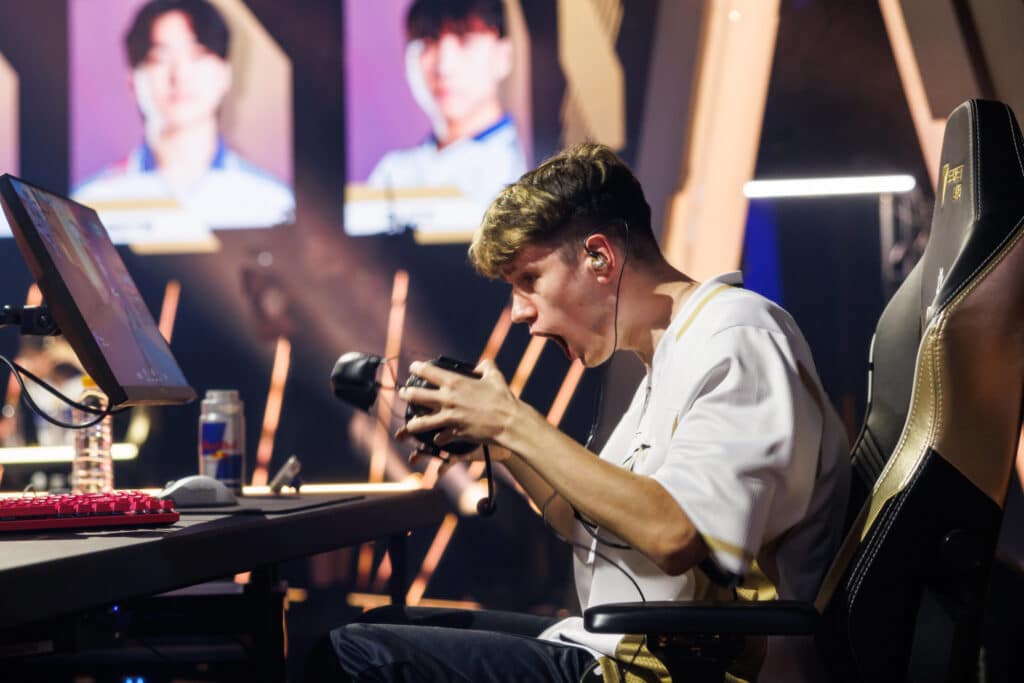
Esports, at its core, is a relentless pursuit of perfection. Teams are meticulously crafted, strategies honed, and individual talents polished, all in the unforgiving glare of competition. Yet, even the most promising formations can falter, leading to the inevitable, often painful, process of roster upheaval. Such is the current narrative unfolding within the VALORANT Champions Tour (VCT) as Dominykas ‘MiniBoo’ Lukaševičius, the aggressive Lithuanian duelist, has been granted permission to explore opportunities beyond Team Heretics for the upcoming 2026 VCT season. This move signals more than just a player transfer; it marks a potential turning point for an organization that has tasted both glory and bitter disappointment.
A Legacy of `Almost`: Heretics` Rise and the Duelist`s Impact
MiniBoo`s tenure with Team Heretics, which began ahead of VCT EMEA Stage 1 2024, reads like a series of heroic attempts that narrowly missed their ultimate prize. Alongside his teammates, he became a central figure in Heretics` meteoric rise. In 2024, they established themselves as a formidable force, culminating in runner-up finishes at the prestigious VALORANT Champions 2024, Masters Shanghai, and VCT EMEA Stage 1. They were the perennial bridesmaids, always at the precipice of greatness, their aggressive playstyle and individual brilliance captivating audiences. MiniBoo, with his sharp instincts and decisive entries, was often the spearhead of their attacks, embodying the team`s bold approach.
The Unforgiving Pendulum of Performance: Heretics in 2025
The 2025 season, however, proved to be a different beast. High expectations followed their strong 2024 campaign, and initially, Heretics showed flashes of their former brilliance. A third-place finish at EMEA Kickoff and a second-place standing in Stage 1 were commendable, capped by a significant victory at the Esports World Cup, securing a substantial $500,000 prize. It seemed the team was poised to finally convert their potential into consistent championships.
But competitive esports rarely follows a linear path. The latter half of 2025 saw a noticeable dip in form. An 11th-12th place finish at Masters Toronto raised eyebrows, followed by a disappointing 5th-6th exit in Stage 2. The season concluded with a similar 5th-6th placement at VALORANT Champions Paris, where the team`s campaign unceremoniously crashed out. The once-consistent European powerhouse found itself battling inconsistency, a stark contrast to their steady improvement just a year prior. It’s a harsh reminder that in the upper echelons of esports, yesterday`s triumphs offer little comfort in today`s struggles.
Beyond the Game: The Unique Bond of Brothers in Arms
Perhaps the most poignant aspect of MiniBoo`s potential departure is the separation from his older brother, Ričardas ‘Boo’ Lukaševičius. Their presence on the same professional VALORANT roster was a rare and heartwarming narrative in a scene often dominated by cutthroat ambition. They were not just teammates; they were family, a dynamic that offered both unique challenges and undeniable strengths.
MiniBoo himself once acknowledged the invaluable role his brother played, particularly in managing the emotional rollercoaster of competitive play. “When we lose, he’s the more calmer one,” MiniBoo explained in a press conference. “So I guess when we come back home and we have free time, he’s kind of speaking to me and calming me down because he’s more experienced and he’s more regulated than I am. I’m too emotional.” Boo, in turn, recognized the uniqueness of their situation: “I don’t think there’s many people like that in general who have a chance to play with their brother. So yeah, I’m just happy about it.”
Despite this deep personal connection, both brothers emphasized their professional boundaries within the game. “Inside the game, you know, I don’t treat MiniBoo any different like the others,” Boo affirmed. “I don’t think he treats me any different. And we are just, you know, all equal inside the team.” This delicate balance of familial support and professional rigor defined their partnership. Its dissolution marks not just a tactical shift for Heretics, but the end of a cherished chapter in VALORANT esports lore.
The Inevitable Reckoning: What Lies Ahead for Heretics and MiniBoo?
For Team Heretics, granting MiniBoo permission to explore other teams is a tough but perhaps necessary decision. When a team, despite possessing immense talent and prior success, begins to falter, a strategic reset often becomes the only viable path forward. The goal is simple: find the missing pieces, or reconfigure the existing ones, to return to championship contention. This implies a rigorous evaluation of their current roster and strategic direction for 2026. The EMEA region is fiercely competitive, and standing still is akin to moving backward.
As for MiniBoo, an aggressive duelist with a proven track record, the opportunities will likely be plentiful. His skill set is highly sought after, and a fresh environment might be exactly what he needs to reignite his competitive fire and chase the trophies that narrowly eluded him with Heretics. The world of VALORANT esports is constantly evolving, and a player of his caliber will undoubtedly draw interest from teams looking to bolster their attacking power.
The impending 2026 VCT season promises to be a landscape of renewed aspirations and revamped rosters. MiniBoo’s move serves as a potent reminder of the cutthroat nature of professional esports – a place where personal bonds, no matter how strong, sometimes yield to the cold, hard logic of performance and the relentless pursuit of victory. Both MiniBoo and Team Heretics now stand at a crossroads, ready to embark on new chapters, each hoping to write a more triumphant story in the annals of VALORANT history.







